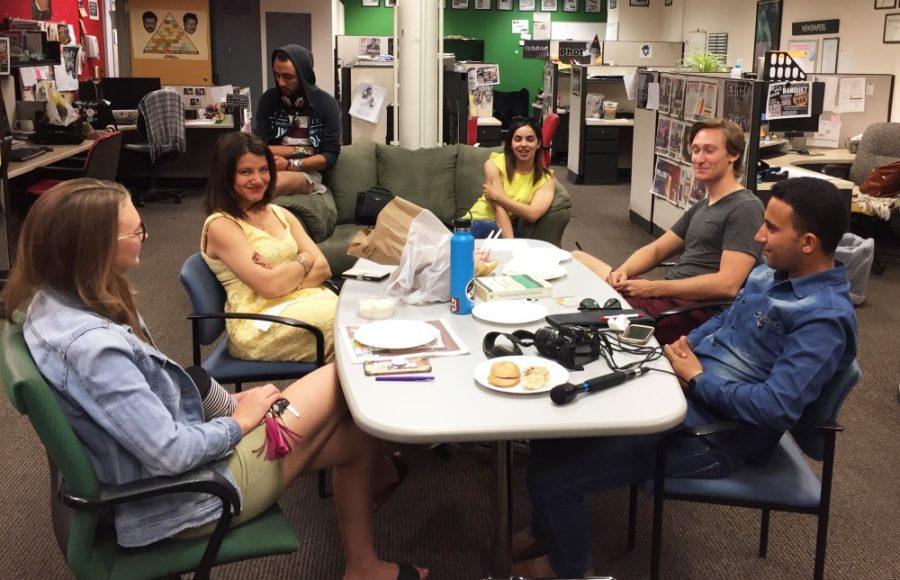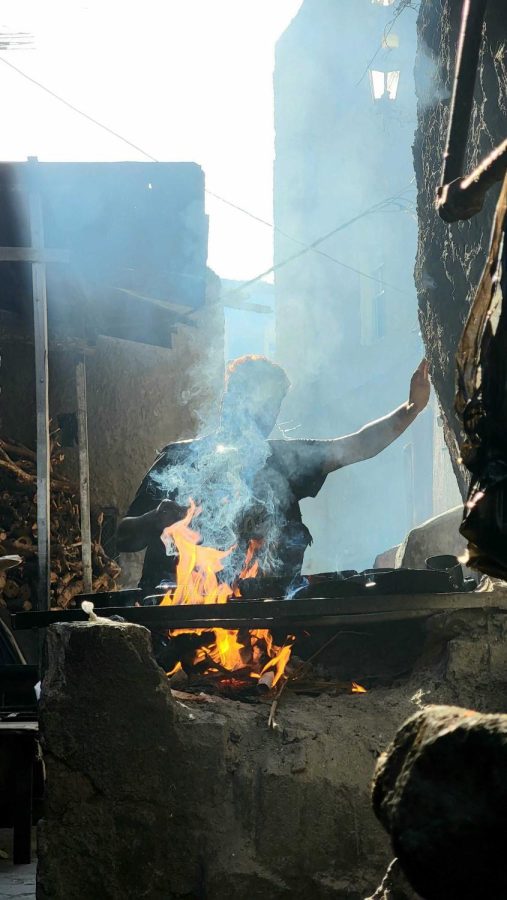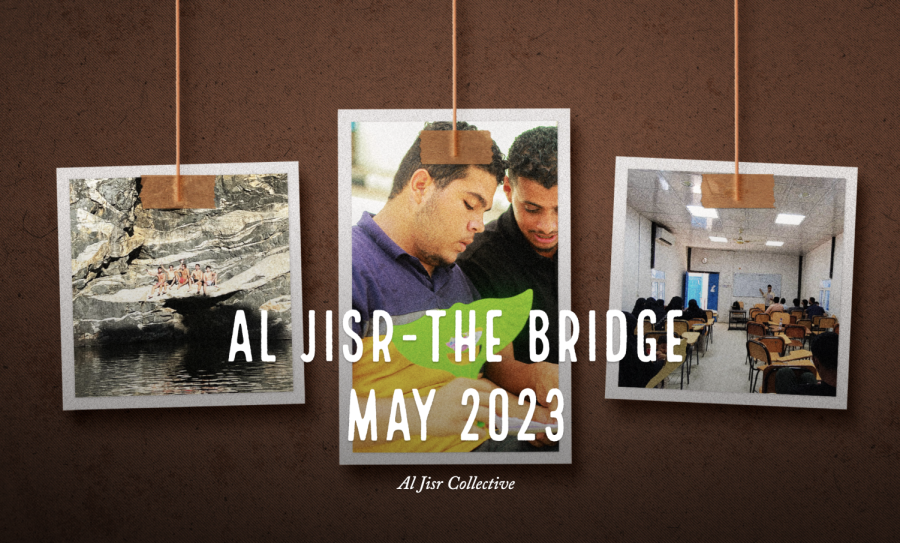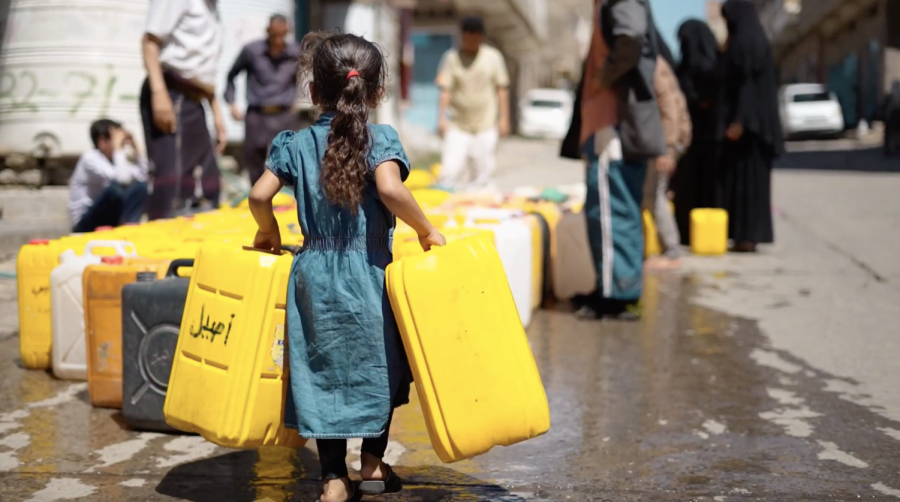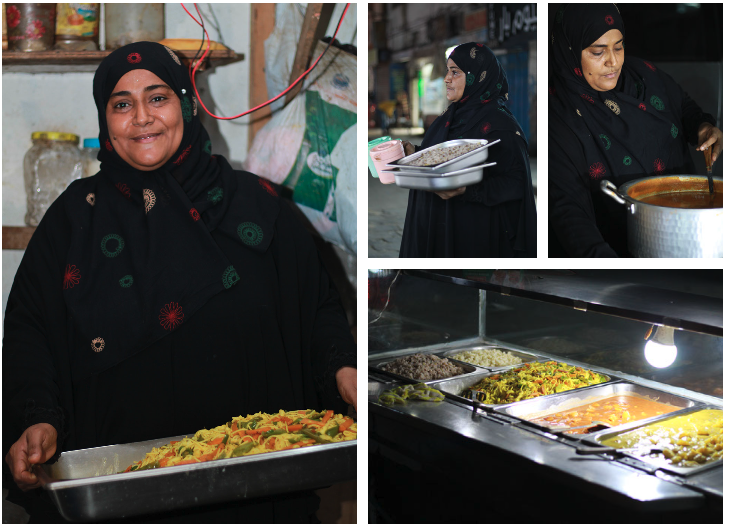Last week, four students studying in Tunisia visited the UA School of Journalism and the Daily Wildcat newsroom as a part of the Aljisr Exchange Program. While Basheer Aldhorai focuses more on the contrast of cultures, Manall Issa gives a recap of her favorite moments and memories here in Tucson.
Basheer Aldhorai is a Yemini exchange student seeking his Masters degree at the Institut de Presse et des Sciences de l’Information. He currently lives in the Tunisian capital of Tunis.
The Republic of Tunisia, which is located in North Africa and overlooks Europe, is characterized not only by its beautiful nature and its diverse cultural heritage, but also its focus on education since gaining independence from French occupation in 1956. Tunisia is distinguished from the rest of the countries in the Arab region and North Africa for education.
Tunisia has become a destination for foreign students, where more than 8,000 students from 32 Arab, African and Asian nations are studying, 70 percent of them in private Tunisian universities and 30 percent in public universities, according to official press reports.
Personally, I have chosen to continue my academic studies in Tunisia, most notably because of the reputation of education there, the price of living, the status of graduates of Tunisian universities in the professional world and the democratic environment in the country after the revolution of Jan. 14, 2011.
That revolution created a good atmosphere for freedom of expression and the press compared to other Arab and African countries.
We know that the cost of studying in any foreign country is an important factor for making the decision to study in one country over another. In Tunisia, students in public universities pay no more than $50 U.S. per academic year, whether foreign or national.
This feature has been guaranteed by the country’s free education system since independence. If you attend a private university, it varies by specialty, but the average fee for the academic year is $2,500.
This is what we pay for universities, but what about housing and living? In my experience, a foreign student can live in Tunisia at a cost of $250. Just like local Tunisian students, they get reduced fees for transportation and university restaurants, free tickets at museums or art and cultural events.
As for the quality of education in Tunisia, it is distinct from the Arab and African region. In the last 50 years, Institute of Journalism university graduates, both Tunisian and foreign, who have been well-established in their fields, are at the forefront of the press scene for media organizations in the Middle East and North Africa.
As a foreign student you will find opportunities to participate in training workshops and professional and academic events. At my college, the most well-known media organizations such as BBC and Al Jazeera hold free courses for students in cooperation with the Institute. This is another indicator of the great prestige of the Institute in Arab and African countries.
How do Tunisians deal with foreigners, especially students?
With a population of about 11 million, Tunisia has a strong tourism industry. Every year, about 7 million tourists travel to Tunisia, so Tunisians are used to greeting foreigners with a smile and tips to help you live well in a country called “Green.”
In Tunisia, there is a good coexistence between every difference. This coexistence evolves day after day. The country mixes the originality of the East with the modernity of the West. Peace is also a prominent feature of Tunisians in their daily behavior on the street.
When you make a transgression against a native Tunisian, he may ask for pardons from you. Perhaps this explains the absence of bloody massacres in the history of this country compared to its surroundings. The country obtained independence in a peaceful manner as well as their revolution without violence.
The activities of literature, poetry, art, music, cinema, culture and theater throughout the year will find you mixing among communities of Arab, African, Amazigh and Francophone. These experiences will add a lot to your own outlook.
The language spoken by the general public here is a mixture of French and Arabic. English has a good presence as well. For students from many countries, especially Southeast Asia — such as China, Japan and Korea — it is a matter of interest to students who come to Tunisia to learn Arabic.
This is the life I live in Tunisia as a foreign student. Every new day will contribute to adding things that have not yet appeared to me. It is an experience that I hope will continue and develop. Tunisia is a country worthy of being a destination for science and culture.
Manall Issa is a Tunisian student studying journalism at the Institut Superieur des Estudes Appliquees en Humanites de Tunis.
I just had my first travel trip and what a start.
I am a member of the Al-Jisr Exchange Program, a platform between students from the UA School of Journalism and students from Tunisia which started as a Facebook group. “Al-Jisr” translates to “the bridge” in English.
For a couple of months both American and Tunisian students exchanged ideas, thoughts and information about journalism and culture.
As a program, Al-Jisr encourages students to be citizen journalists who share and investigate different elements of student’s lives.
I have been passionate about journalism for a long time, and I am lucky to learn and practice journalism as part of the new generation of journalists following the Tunisian Revolution. It was with that spirit that I looked forward to the trip to Tucson.
After a long flight, my colleagues and I finally arrived. First, we met some of our colleagues from the University of Arizona, and I personally felt like I was home.
Our second day was extremely special for me. I never imagined I would get the chance to go to the border between the U.S. and Mexico. Thus, I had a mixture of feelings between sadness and strangeness because borders are not supposed to separate humans.
At the UA I participated in interesting activities, like flying a drone and learning video and audio editing. I visited the The Daily Wildcat newsroom. It was an amazing experience to be next to our colleagues while they were preparing their newspaper for the next day.
I also was fortunate enough to visit Arizona Public Media, the local National Public Radio affiliate, and got the chance to see different parts in the process of putting their work together.
I was excited to try new foods in Tucson, including having my first hamburger and trying a Native American dish called “fry bread” at Mission San Xavier del Bac. I also enjoyed Mexican food like “tacos.” But, I think I fell in love with the burgers most.
Honestly, I’m glad that my trip was not to one of the most popular cities in the U.S. It was to a city I had never heard about until I became part of Al-Jisr.
It was such a memorable experience. I went home filled with much love and happiness. I fell in love with Tucson and its people. I’m not saying goodbye to Tucson, because I’m coming back soon.
Follow the Daily Wildcat on Twitter



